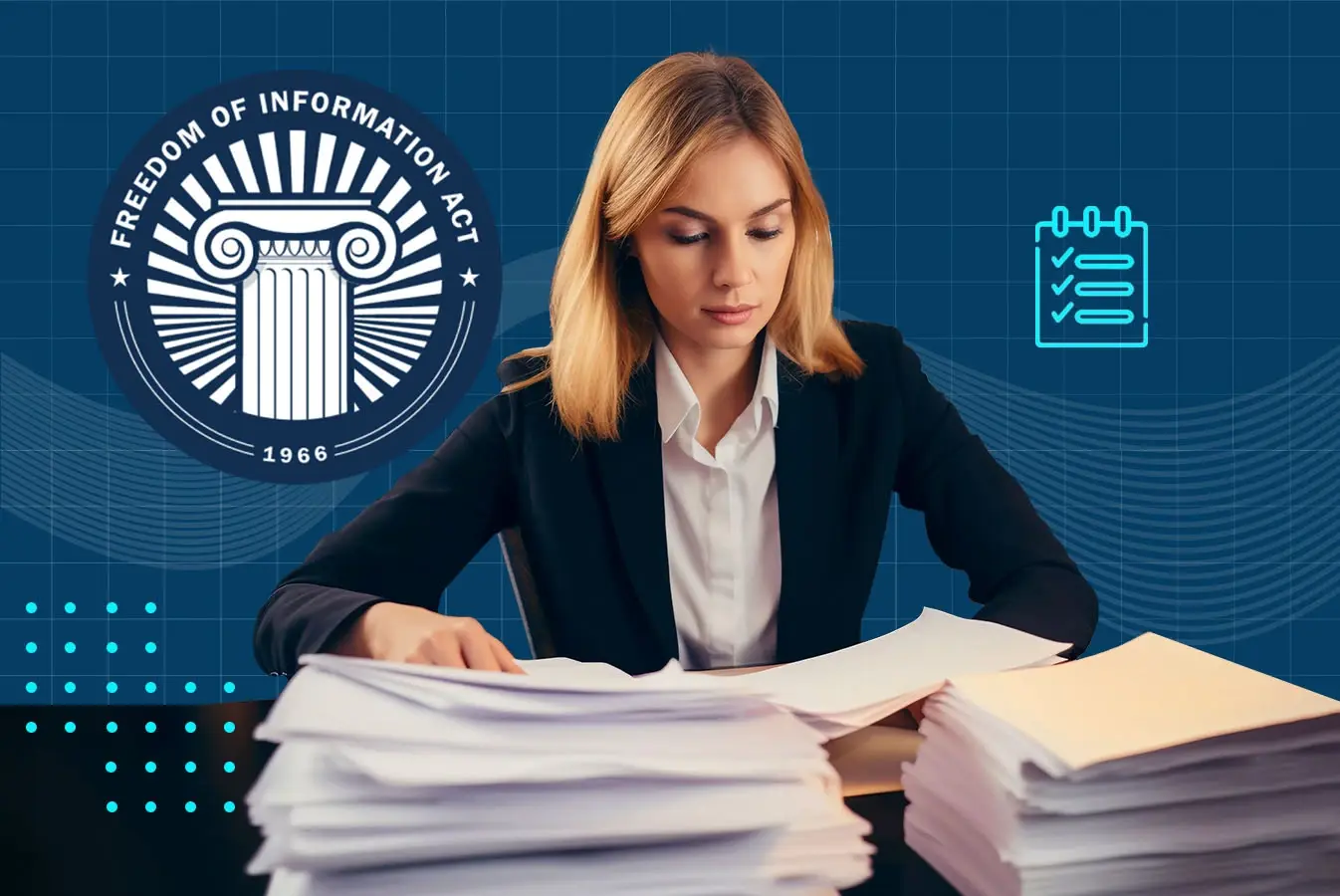It is crucial to protect any sensitive personal information from being released to the public. So, redaction of personally identifiable information needs to be done at any cost before its disclosure. Moreover, it is incredibly important to meet the requirements of compliances for redaction.
Do you want to know what the FOIA Privacy Act compliance rules are for redaction?
This blog will clarify FOIA Privacy Act rules for redaction, what information should be redacted before its disclosure and which redaction tool you should choose to serve that purpose.
What is the Freedom of Information Act (FOIA)?
Freedom of Information Act (FOIA) is the information access law enacted in 1966. According to FOIA, the public has the right to request access to records from any federal agency. Federal agencies can disclose any information under FOIA except for nine exemptions that protect personal privacy, national security, and law enforcement records.
The public cannot request to obtain such information that, if disclosed, harms an individual or Government's reputation and any information that is prohibited by another law. We will let you know what those exemptions are later in this blog.

Source: Michigan's Freedom Of Information Act
Overview of the Privacy Act and its Objectives:
The Privacy Act was passed by Congress in 1974. The Privacy Act is the law that protects all confidential records and personal information from misuse with limited access provisions.
The Privacy Act ensures that personal records are not accessible to the public or other third parties and have the following basic objectives.
- Restrict personal identifiable information from disclosure
- Grant individuals the right to access information about themselves.
- Establish a code of “fair information practices” that must be abided by federal agencies for the collection, maintenance, and transmission of records.
- Grant individuals the right to look for the amendments done on the data about themselves.
Now let’s quickly jump into the FOIA Privacy Act rules for redaction.
FOIA Privacy Act Rules for Redaction:
According to FOIA Privacy Act, federal agencies are allowed to disclose any records except for those that are withheld under nine exemptions. This exempted data must be redacted before sharing or releasing it to the public. These exemptions are as follows.
- Any national security information involving national defense and Foreign Policy affairs.
For example, any non-military levels of security such as economic, political, cybersecurity, environmental are meant to protect citizens, the economy, and other institutions.
- Records related solely to internal personnel rules and practices of an agency.
- Personally identifiable information, particularly that information which is present in medical and financial records.
For example, any document or digital file containing names, social security numbers, medical information, health insurance coverage of an individual.
- Confidential Business information, trade secrets or financial records.
For example, any business secret if shared in public can provide a company’s competitor with an economic advantage.
- Interagency or intra-agency communications or recommendations regarding policy-making processes.
For example, any draft document or recommendation highlighting the personal opinion of an author.
- Law enforcement compiled records.
For example, law enforcement operations such as incident reports, warrants, case management files, criminal records etc.
- Information related to examinations and operations prepared for the regulation or supervision of financial institutions.
- Geological, geophysical data including maps etc.
For example, the data that is used to assist in geological mapping and environmental monitoring.
So, what should be done to protect such sensitive information?
The answer is simple and clear...
We need an efficient time-saving redaction tool to obscure the information mentioned above and meet the FOIA compliance rules for redaction.
We have an ideal solution for you...
VIDIZMO: FOIA Redaction Software
VIDIZMO’s powerful standalone redaction tool uses artificial intelligence services to redact faces, persons, objects, and other personally identifiable information within digital files. With VIDIZMO Redaction Software you can:
- Automatically detect faces, bodies, license plates and other custom objects in videos, audios, and images using artificial intelligence.
- Tracking of faces, bodies, objects identifying personal sensitive information frame by frame in videos for accuracy.
- Bleep or mute specific audio clip highlighting PII in audio files.
- Easily redact multiple video files simultaneously saving time and reducing chances of human errors.
- Automatically redact video files containing sensitive information by blurring, pixelating, or adding a solid redaction box over a redacted item.
- A built-in editing tool can remove the unnecessary parts of videos and audio.
- Automatically transcribe (speech to text) digital files in up to 40 languages, translate them into more than 50 languages, and can hide specific texts from generated transcriptions.
- Adhere to federal and state-level compliances such as GDPR, CJIS, FOIA, etc.
- Can be deployable on-premises, on cloud (Commercial/Government) Azure Government Cloud, AWS Cloud, or hybrid infrastructure.
For more information on the topic, do check out our detailed guide on redaction.
Contact us for more information...
Visit our website or contact us.
Posted by VIDIZMO Team
We at VIDIZMO are experts in secure and compliant video streaming and digital evidence management. Our aim is to help educate such that you can better utilize your video data.
- Tags
- Redaction



